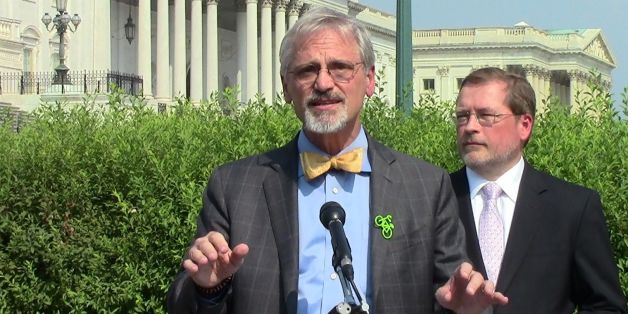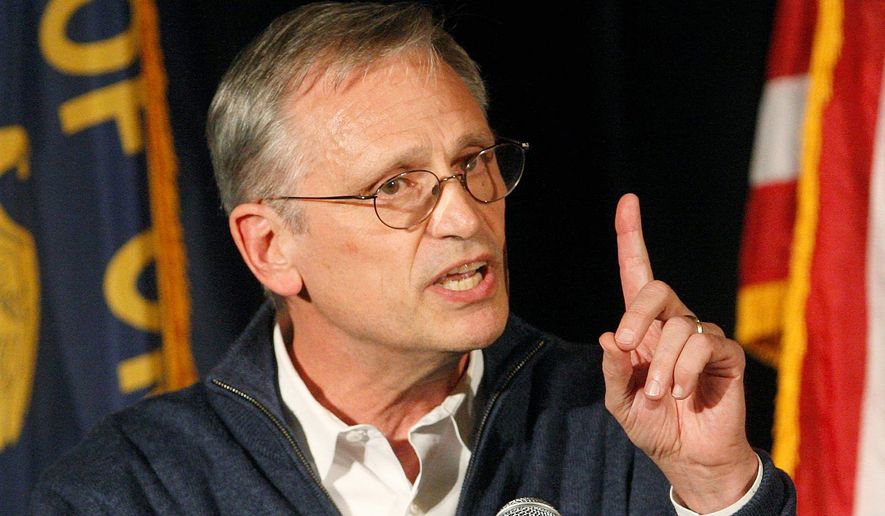U.S. Rep. Earl Blumenauer thinks legal cannabis in the U.S. is less than four years away
The U.S. Representative for Oregon’s 3rd congressional district believes that the 2018 elections could majorly contribute to the removal of cannabis from the federal list of Schedule 1 narcotics.
Could the battle to legalize cannabis across the United States be closer than we think?
According to U.S. Rep. Earl Blumenauer (D-Ore.), cannabis may be deregulated nationwide within as little as four years.
“I made a bet that within five years, every state will be able to treat cannabis like alcohol and there will be universal access to medical marijuana,” Blumenauer announced to a group of cannabis entrepreneurs at Cultivation Classic in Revolution Hall.
“If we do our job, it’s game over in 2 years.”
Blumenauer is a long-time supporter of legal cannabis in the U.S.
 As someone who has supported cannabis reform for many years, Blumenauer possesses quite a lot of knowledge on the topic of legal weed.
As someone who has supported cannabis reform for many years, Blumenauer possesses quite a lot of knowledge on the topic of legal weed.
The U.S. Representative for Oregon’s 3rd congressional district believes that the 2018 elections could majorly contribute to the removal of cannabis from the federal list of Schedule 1 narcotics.
This list also includes narcotics like methamphetamine and heroin.
“If Democrats control the House of Representatives in the first months of the next Congress in 2019, we will be having hearings on de-scheduling,” said Blumenauer.
The 69-year-old Oregon congressman is pleased to see many of his colleagues changing their minds in terms of cannabis legalization, such as Republican John Boehner.
Boehner, a former opponent of cannabis legalization, is now investing in the cannabis industry. He was welcomed to the cannabis community by Blumenauer, who presented him with a pair of “cannabis-themed” socks.
“I don’t second-guess people’s motives if they’re willing to evolve, whether it’s for political expediency, whether it’s that they’ve seen the light, whether they’re fed up with the racial injustice seen in drug laws or if it’s a commercial opportunity,” says Blumenauer.
Facts about cannabis prohibition in the U.S.
 According to the Marijuana Policy Project (MPP), when cannabis was initially prohibited on a federal level in 1937, a shockingly low number of Americans knew anything whatsoever about the plant that is now being prescribed to children with epilepsy in weed-friendly states.
According to the Marijuana Policy Project (MPP), when cannabis was initially prohibited on a federal level in 1937, a shockingly low number of Americans knew anything whatsoever about the plant that is now being prescribed to children with epilepsy in weed-friendly states.
Today, 49 percent of Americans have admitted to trying cannabis, with more than 22.2 million claiming they have used the herb in the past month.
Despite the fact that America has been tormented by a nationwide drug war for decades, government-funded researchers claim that high school seniors frequently report having easy access to cannabis.
Since 1995, there have been over 12 million cannabis-related arrests in the United States, with an estimated 700,993 of those arrests taking place in 2014. This figure is remarkably higher than the number of violent crimes committed nationwide combined.
On a positive note, political support for legal cannabis in the U.S. is growing.
“It will be a sea change and it is within our grasp,” says Blumenauer.
If cannabis prohibition in the U.S. is put to an end, just as Blumenauer anticipates, American citizens who were charged with simple cannabis possession may be presented with an opportunity to have their convictions reduced or expunged.














